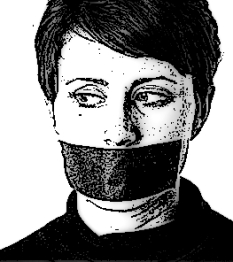The path to enlightenment is long, and so it is with education.
At one school where I worked in my early teaching days, the data from the reading tests I’d done clearly indicated my students dipped in reading ability as soon as they were with me. Within a week or two of the new school year, they had lost months and months off their reading ages!
I asked my mentor to watch me test and give me feedback. You’re doing it right, she said – as you were – and on I went. But I worried. What had caused the erroneous data? Was it the summer dip? Was it the test? Was it me after all? What? It’s all good, I was told. Don’t worry about it. I was left with no answer, and soon – bogged down in other tests, marking, planning and actual teaching – I forgot about it. Then came parents’ evening.
A parent asked me, almost angrily, why her daughter had not only failed to improve but in fact had slipped backwards since I had been teaching her. I explained that her daughter had improved – I detailed specific areas, citing actual skills and showed examples of her daughter’s work as evidence. But no – the reading age cited at the end of last year was higher than the reading age cited at the start of this year, and her face said quite clearly that data doesn’t lie; I was failing her child.
I was once again in a quandary. Was it me? Was it the test? Summer dip? Were the  previous year’s results inflated? I had no real answers and, despite asking again, it was clear no-one was interested in helping me get to the bottom of it. Fussy parent – it’s all good, they said. You’re doing fine, that said. Shush, was the underlying message.
previous year’s results inflated? I had no real answers and, despite asking again, it was clear no-one was interested in helping me get to the bottom of it. Fussy parent – it’s all good, they said. You’re doing fine, that said. Shush, was the underlying message.
So on I went. Uncomfortable, uneasy, but unable to question it any further, on I went.
Years later, at another school – very different to the first – I was again told my reading test results couldn’t be right, this time by a colleague. The test I was using and the age range of the students were both new to me, and I felt it could indeed be my testing that was amiss. I asked to be shown how to administer the test so that I could identify where I was getting it wrong; They showed me, but it seemed to be exactly what I’d done. So I tested a student and was observed. Yes, they said, that’s right.
I asked how, then, my results could be so much lower than the previous teacher’s.
They fudged and fidgeted and looked uneasy, but they didn’t explain.
I asked to watch another (third) teacher test one of my students, which she did, and she got the same result I had.
By this point I was beyond baffled not by the test but by the insistence that I accept the other results despite no-one being able to show my why mine were wrong.
Older and bolshier than I had been years before, I determined to get to the bottom of things this time. I again asked both my senior teachers and the principal to explain to me why my results were not deemed accurate. No-one could. I explained that I was truly baffled, but very worried about putting on reports grades that I felt were inflated, sometimes vastly. Throw away comments and roundabout conversations eventually made clear that the school was scared stiff of looking like it was failing students, terrified of Ministry storming in and taking over, afraid of looking bad when they were trying so hard to help their students.
And it’s true, schools have to be careful. They are being held over coals, with little help for those most in need, and more often than not a whole lot of blame just waiting to be shot out of a cannon in their direction. They are watching their backs all the time. Scared into fudging.
Being caught in the middle of such unreliable and damaging system feels seedy. Dirty. The whole data collection, National Standards, league table palava has an unpleasant miasma to it, and one is left with a sense that merely by being a teacher you are complicit in something grubby. And I do wonder, can this in any way be in the best interests of our students?
Most teachers I speak to say no. Many parents say no. So why is it that so many teaching professionals won’t put their noses above the parapet and say this is not in the best interests of our students? Why do the unions and their members continue to roll over with regards to National Standards, and not fight the lunacy tooth and nail?
And, most disturbingly, why is speaking out – speaking the truth – considered by so many to be an act of disobedience?
How can complicit silence ever improve things?
~ Disobedient Teacher D
